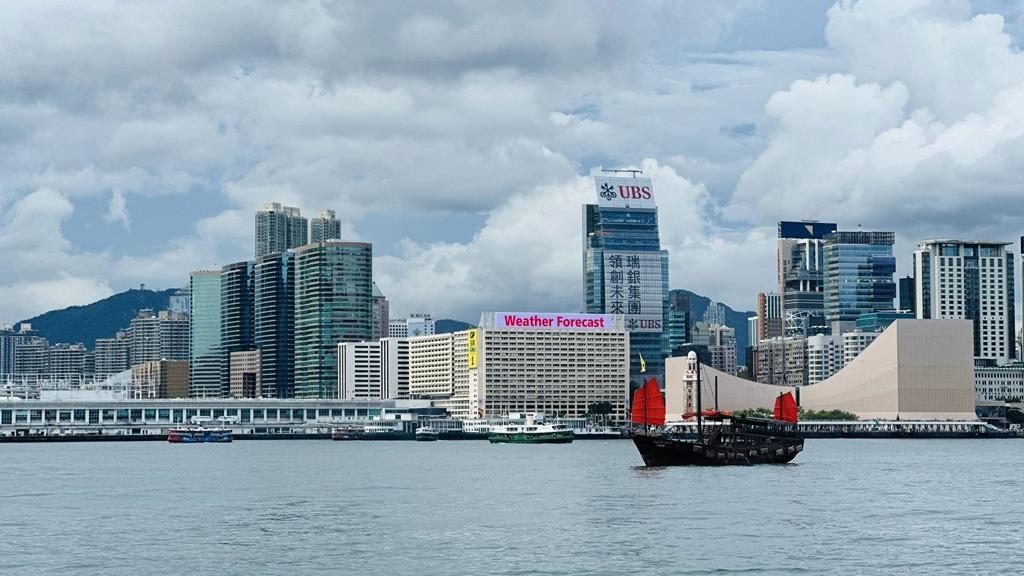 Adrian Cheng Chi-kong, a Hong Kong member of the National Committee of the Chinese People's Political Consultative Conference, poses for a photo in front of the Great Hall of the People, in Beijing, China, March 4, 2024. (PROVIDED TO CHINA DAILY)
Adrian Cheng Chi-kong, a Hong Kong member of the National Committee of the Chinese People's Political Consultative Conference, poses for a photo in front of the Great Hall of the People, in Beijing, China, March 4, 2024. (PROVIDED TO CHINA DAILY)
With a host of much-anticipated events to be held in the Hong Kong Special Administrative Region, building a Chinese cultural intellectual-property exchange could be a stepping stone to meeting the city’s cultural goals by giving full play to the immense commercial potential of the nation’s charm, says business tycoon Adrian Cheng Chi-kong.
“We need to develop a ‘mega events economy 2.0’ with Hong Kong as the base, constructing a globally-oriented Chinese cultural IP ecosystem that could incubate more cultural IPs, and advance the digitization, commercialization, industrialization, and globalization of the nation’s culture,” says Cheng, chief executive officer of New World Development.
ALSO READ: Forum: HK shows strong potential for regional IP trading hub
Cheng, who is also a Hong Kong member of the National Committee of the Chinese People’s Political Consultative Conference – the nation’s top political advisory body – made the remarks in an interview with China Daily during this year’s “two sessions” in Beijing.
Hong Kong has top talents in valuation, due diligence, legislative drafting, and commercial arbitration, and its standards align with international practices, making the city an ideal location for an exchange connecting domestic and international stakeholders.
Adrian Cheng Chi-kong, CEO of New World Development
Positioned as an East-meets-West center for international cultural exchange, Hong Kong has stepped up efforts to showcase its charisma to the world by promoting its “mega events” economy.
According to the SAR’s Culture, Sports and Tourism Bureau, Hong Kong will host more than 80 grand events in the first half of this year, including the Hong Kong Sevens and pop culture festival ComplexCon.
To take the SAR’s cultural strength to new heights, setting up a Chinese cultural IP exchange in the SAR will be the first step, says Cheng.
READ MORE: CE: Mega events to reinforce city's global status
“Hong Kong has top talents in valuation, due diligence, legislative drafting, and commercial arbitration, and its standards align with international practices, making the city an ideal location for an exchange connecting domestic and international stakeholders.”
A high-profile, third-generation scion, Cheng is well-versed not only in business, but also in multiple roles as a national political adviser and cultural personality.
 Chinese traditional junk Dukling plies the Victoria Harbour on Sept 7, 2023. (SHAMIM ASHRAF / CHINA DAILY)
Chinese traditional junk Dukling plies the Victoria Harbour on Sept 7, 2023. (SHAMIM ASHRAF / CHINA DAILY)
Last year, Cheng, who founded the landmark, high-end retail complex K11 MUSEA in Tsim Sha Tsui, was appointed chairman of Hong Kong’s Mega Arts and Cultural Events Committee.
“We can collaborate with relevant entities on the Chinese mainland to export more high-quality Chinese cultural IPs to Hong Kong, enabling cultural enterprises to access more financing, trading, and matching opportunities,” he says.
READ MORE: Better future for tourism lies in integration with culture, arts
The SAR’s proclivity for art and culture should never be overlooked. For many, Hong Kong’s unique charm lies in its cultural identity which encompasses both rich Chinese elements and international influence.
Cheng cited the Chinese martial arts and chivalry novels by Louis Cha Leung-yung, better known by his pen name, “Jin Yong”. Throughout his lifetime, Jin Yong had created 15 martial arts novels, featuring over 1,400 characters. More than 140 million copies of his works have been sold worldwide, translated into 14 different languages.
Whether there’re novels themselves or their subsequent adaptations into films, TV dramas, theme songs, and even video games, they have been widely embraced by generations of Chinese people as a collective memory for the global Chinese community.
ALSO READ: Hong Kong's push for mega events welcomed by industry
Vast opportunities beckon in Hong Kong’s cultural and artistic development, as over a century of cultural exchanges between East and West has given rise to numerous unique cultural IPs exclusive to the city, says Cheng.
“Looking ahead, the focus should be on how to industrialize and globalize Hong Kong’s cultural IP, effectively telling the stories of the country and Hong Kong on the international stage.”


